How Japan is accommodating increasing foreign nationals including children
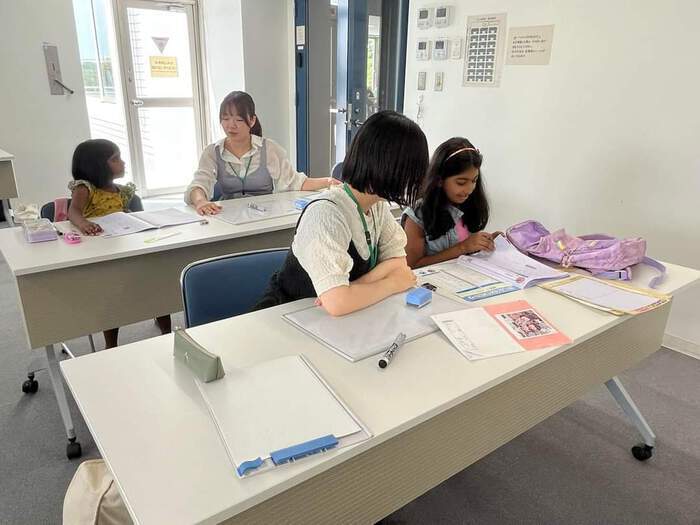
Photo provided by Hitachinaka International Association
The number of foreign nationals in Japan has been increasing each year, reaching a record 3,323,374 as of January 1, 2024. The increasing residents include children who go to school -- who are not yet fluent in the Japanese language. How are they adapting to life in Japan? What do they do during their schools' summer holidays? Nippon TV interviewed those who are working as supporters for non-Japanese children.
Local residents ask for establishment of multi-lingual consultation center
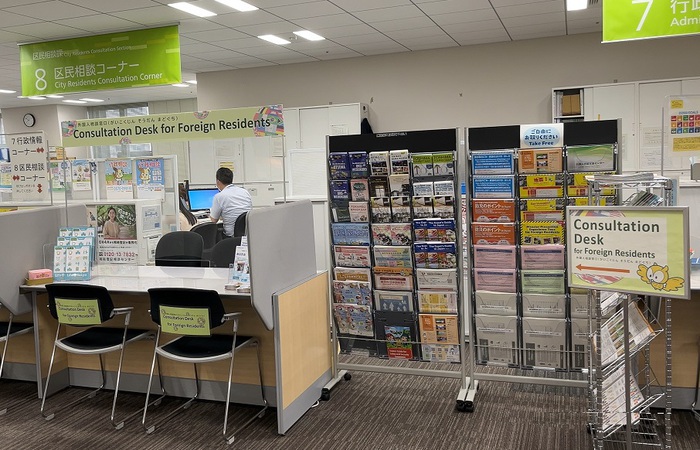
A consultation center for foreign nationals was set up in the Toshima Ward Office in Tokyo on July 1. Toshima Ward Mayor Takagiwa Miyuki said she hopes the ward to be “easy to live” for the 11.7 percent, or approximately 34,500 non-Japanese residents who live in the ward and set up a consultation center. The center is open five days a week and can respond in 22 languages.
The service was based on the idea of Toshima native Kagawa Yoko. She has seen many foreign nationals, especially in recent years, not having sufficient access to information. She suggested setting up a system for foreign residents who move to Toshima Ward, where they will be given beginner-level Japanese classes and a lecture on how to live in Japan. The lecture includes guidance on garbage separation and the national health insurance system, which are unique to Japan.
Kagawa pointed out that a structure that will allow Japanese and non-Japanese residents to co-exist is necessary, as foreigners who do not have access to such information tend to segregate themselves and join a community of those who come from the same country. The same group of people also might be involved in troubles with their Japanese neighbors.
Japan is grappling with a serious labor shortage and is increasingly relying on foreign labor. However, society remains difficult for foreign residents to live in.
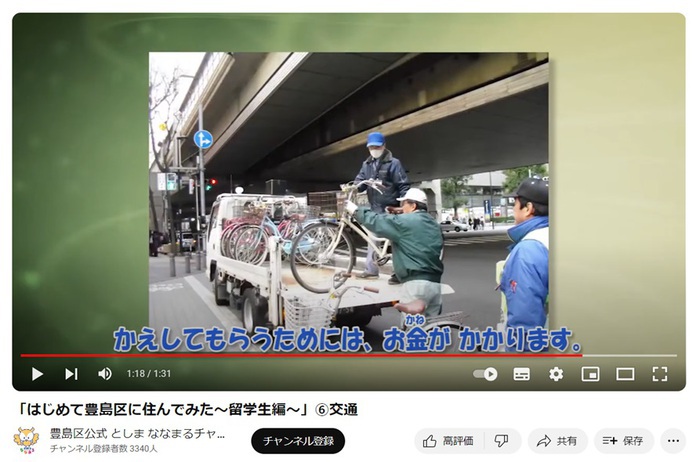
Videos that were posted by Toshima Ward illustrate some examples of things that residents should be aware of.
-
It is cheaper to use electronic payment such as Suica and Pasmo when using public transportation
-
People must pay for penalty charge if their bicycles get taken away after parking at a non-designated area
These may be common sense for Japanese residents, but it is not for foreigners. Linguistic barriers, differences in customs, culture and values are all things that can distress adults. It is difficult to live in Japan for non-Japanese adults, let alone children. What kind of support is available for them?
What happens if students lose their Japanese skills during the summer break?
July 28 was during the summer vacation. Children from India, Nepal, the Philippines, and China were gathering at this facility in Hitachinaka City, Ibaraki Prefecture. They were participating in a "Summer Holiday Study Workshop.”
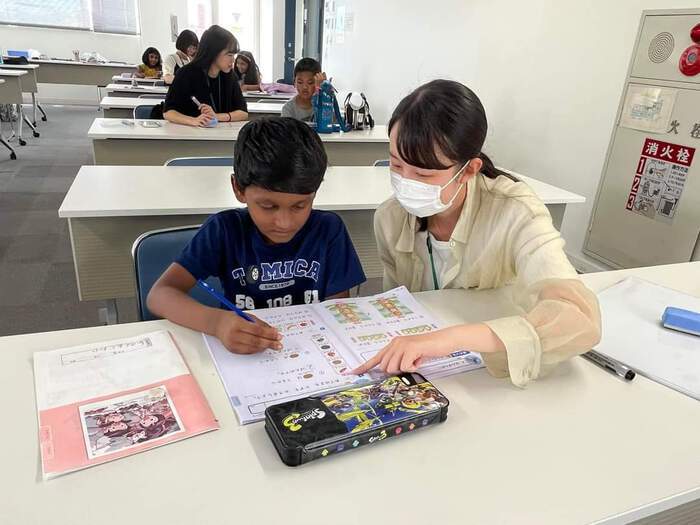
Volunteers were helping the students work on homework and handout materials at school
Senba Miyako, vice president of the Hitachinaka International Association, which organized the event, said that she wanted to provide children the chance to learn and use Japanese so they will not forget the language during the long break. There are many cases where students lose their Japanese skills during the break, and this often discourages them from studying. The association hopes to provide more opportunities for Japanese language support, but this is difficult due to lack of manpower since many of the volunteers are either university students or have a main job.
On this day, guardians accompanying their children were checking with volunteer members about what was written in handouts from the school. One mother said that she was relieved to understand what summer vacation homework was given to her child, and that now she can make sure that her child finishes them before returning to school.
Although parents utilize translation apps, the amount of printed materials given from schools is immense. Senba said that it is difficult to take a picture of every paper and upload them to the app so it can be translated.
Even if they are able to read the documents, there is so much information that it is difficult to distinguish what information is important and understand what needs to be done.
Senba said that an increasing number of foreign workers come to Japan with their families, unlike in the past where they came alone. However, the families are left to help themselves in learning the language. She stressed the necessity of Japanese language support for the family members who come to the country.
Linguistic ability affects children’s confidence
Nakajima Rikako, who works for the Hitachinaka International Association to support foreign residents, also stressed the importance of language.
“Many children feel left out due to linguistic issues,” she said. “There are barely any places and opportunities that boost children’s confidence. It would be good if there was a way to help them gain confidence.”
Nakajima said that the children who move to Japan because of their parents’ work feel sad and isolated due to linguistic barriers, while they could be having fun in their native country with their friends. “If they feel that Japan is a nice and fun place where they can feel comfortable, I think they will be full of energy.”
How are municipalities addressing the issue?
According to an investigation that was carried out in 2022, Koto Ward had the second biggest number of non-Japanese children in Tokyo. The city’s education supporting department said it did not have special programs during the summer holidays but addresses both Japanese and non-Japanese citizens’ needs every day. However, the service is offered only in Japanese. The schools can apply for education support for non-Japanese students when they enter, however, the service is only available for the school’s initial orientation.
How exactly are schools addressing this issue?
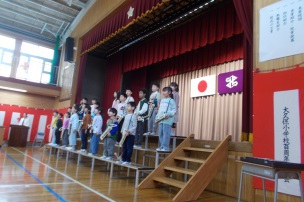
“Nothing can be forced”
60 percent of the students at Shinjuku Okubo Elementary School have roots outside Japan. Vice Principal Tanaka Etsuko said she was concerned that they do not speak Japanese at home during the break and is encouraging students to go to daycare so they can keep in touch with the language. Okubo Elementary School prepares letters in eight foreign languages for the students who come from India, Canada, South Korea, Thailand, Nepal. Bangladesh, the Philippines and Vietnam. The school also asks the non-Japanese guardians to introduce their friends and relatives who speak Japanese so they can assist them in parent-teacher interviews.
The school offers different levels of Japanese classes to international students. However, since the students must attend other classes together with the Japanese students for other subjects without special language support, Tanaka said that she feels that support is necessary for students who may be having trouble.
Okubo Elementary School gives each child individualized homework assignments during the summer vacation according to their ability. However, when we asked Tanaka to give schools advice on what they can do for their foreign students, she said “nothing can be forced.” She cited school excursions as an example. “Many people in Japan think that they have to prepare home-cooked food for lunch, but it can be bought at convenience stores, and it can be any dish from any country. I think it is nice that students here accept differences even when someone cannot do something like others do, or bring something different, instead of accusing them for it.”
It seemed that children were truly embracing diversity and inclusion.
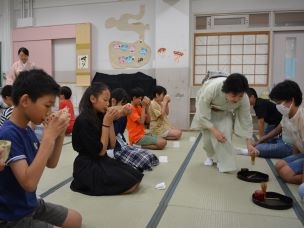
Finding support for children with roots outside Japan is difficult
I decided to take on this story after realizing that there was not much on the Internet that could be found on what kind of support non-Japanese children living in Japan could get when they encounter problems with summer holiday assignments.
Even when it comes to things such as education support during the summer holidays, I felt that it is difficult for those with roots outside Japan to gather information. There are many things that need to be done to make life in Japan as stress-free, enjoyable, and fulfilling as possible for them.
Although efforts by schools, municipalities and non-profit organizations are spreading, I would like to see the central and prefectural governments take more leadership in spreading the successful precedents.
Furthermore, it is important for each and every one of us to have interest so foreign residents living in Japan will have access to information.
Reporting by Ando Sawako, Nippon TV Economic Division



